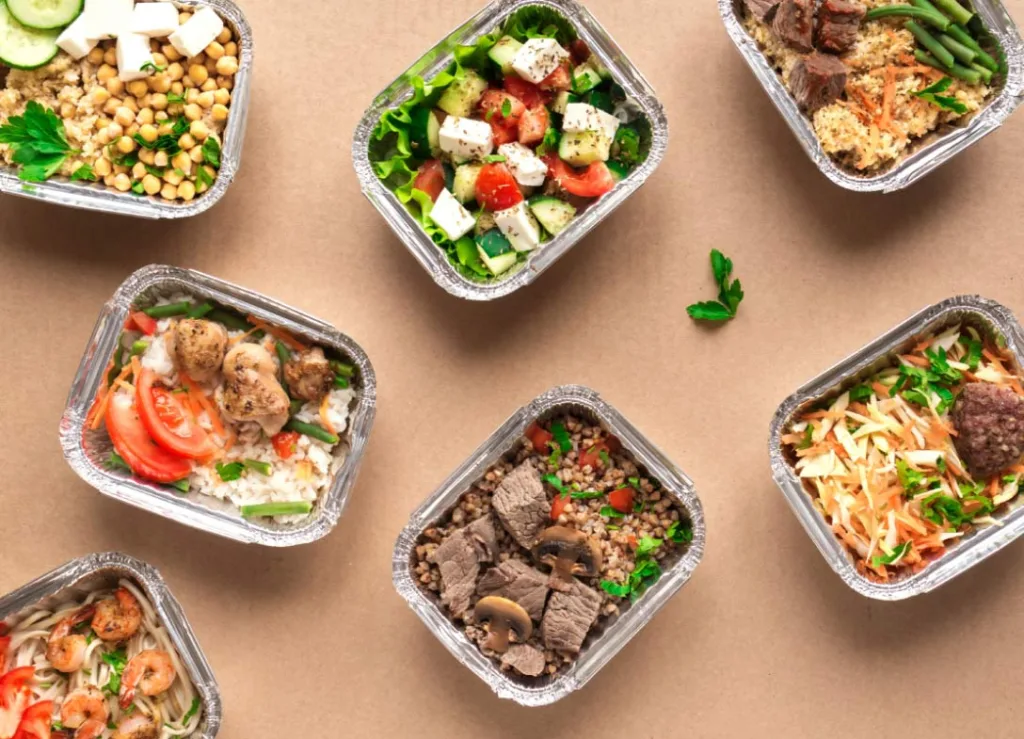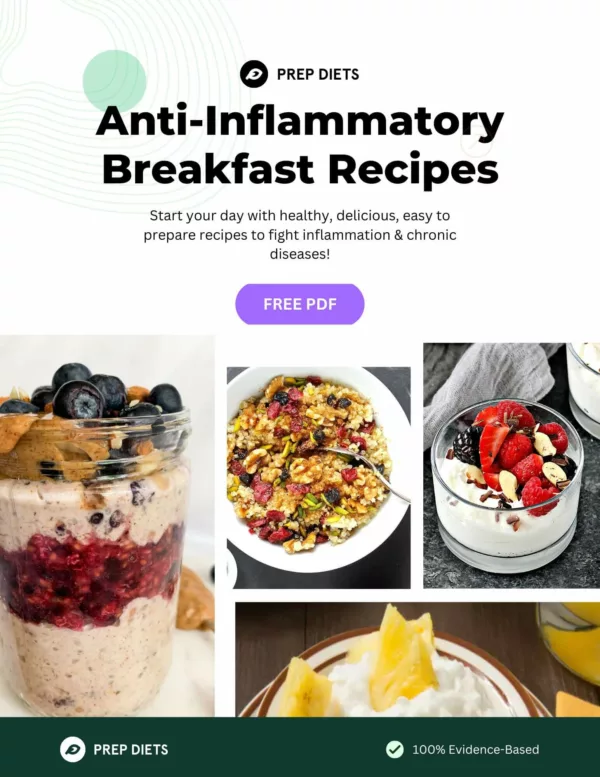Welcome to our comprehensive guide on Juicing Recipes for Inflammation. Inflammation is a natural response of the body’s immune system to injury or infection.
However, chronic inflammation can lead to various health problems, including joint pain, digestive issues, and chronic diseases such as cancer, diabetes, and heart disease.
Fortunately, incorporating anti-inflammatory foods, antioxidants, phytonutrients, and detoxification into your diet can help alleviate inflammation and improve overall health.
Juicing is an excellent way to get maximum benefits from these ingredients in an easy and delicious way. In this article, we will explore the top anti-inflammatory juicing ingredients and provide some easy and healthy juicing recipes to help reduce inflammation and improve your health.
The Role of Juicing in Reducing Inflammation
Juicing is an effective way to reduce inflammation as it provides essential nutrients, antioxidants, and phytonutrients that are important for our health. Juicing helps boost the immune system and eliminate harmful bacteria from our body, which further reduces inflammation. When we consume juices, the nutrients get absorbed directly into our bloodstream, and our digestive system gets a much-needed break.
The cold press slow masticating juicer is the best option for juicing as it preserves the maximum amount of nutrients, and the juice produced has a longer shelf life. The gentle and slow process of juicing ensures that the enzymes and nutrients are retained, making the juice nutrient-dense and beneficial for our health.
The Best Anti-Inflammatory Juicing Ingredients
Several anti-inflammatory ingredients can be used in juicing. Green leafy vegetables like kale, spinach, and collard greens are rich in antioxidants and phytonutrients that help reduce inflammation. Cruciferous vegetables like broccoli, cabbage, and cauliflower contain sulforaphane, which has anticancer and antimicrobial properties.
Parsley is an excellent source of quercetin, which has antioxidant and anti-inflammatory properties, while ginger root has been used for centuries to reduce inflammation and pain. Turmeric root contains curcumin, which has potent anti-inflammatory and antioxidant properties. Lemon and cucumber contain vitamin C, which helps boost the immune system, while mint leaves are a rich source of antioxidants and phytonutrients that help reduce inflammation.
Juicing Recipes for Inflammation
Here are some easy and healthy juicing recipes for inflammation:
Green Juice
Ingredients:
- 1 cup of kale
- 1 cup of spinach
- 1 cucumber
- 1 apple
- 1 lemon
Instructions:
- Wash and cut all the ingredients.
- Put them in a cold press slow masticating juicer and juice.
- Drink immediately.
This green juice is rich in antioxidants and phytonutrients, making it an excellent choice for reducing inflammation.
Ginger-Turmeric Juice
Ingredients:
- 2 inches of ginger root
- 2 inches of turmeric root
- 1 cucumber
- 1 lemon
Instructions:
- Wash and cut all the ingredients.
- Put them in a cold press slow masticating juicer and juice.
- Drink immediately.
This juice is an excellent source of curcumin and gingerol, which are potent anti-inflammatory compounds. It also contains vitamin C, which helps boost the immune system.
Parsley-Cucumber Juice
Ingredients:
- 1 bunch of parsley
- 1 cucumber
- 1 lemon
Instructions:
- Wash and cut all the ingredients.
- Put them in a cold press slow masticating juicer and juice.
- Drink immediately.
This juice is an excellent source of quercetin, vitamin C, and antioxidants, making it a great choice for reducing inflammation.
How Juicing Can Help with Chronic Diseases
Chronic inflammation is a significant risk factor for chronic diseases such as cancer, diabetes, and heart disease. Juicing is an effective way to reduce inflammation and lower the risk of chronic diseases.
Sulforaphane, found in cruciferous vegetables like broccoli, has potent anticancer properties and can help reduce the risk of cancer. Ginger and turmeric contain anti-inflammatory compounds that help reduce the risk of heart disease and diabetes. The antioxidants and phytonutrients in green leafy vegetables and other ingredients in juicing can help reduce oxidative damage, which is a significant risk factor for chronic diseases. Consuming juices regularly can help prevent and manage chronic diseases and improve overall health.
How Juicing Can Help with Joint Pain, Digestion, and Blood Sugar Levels
Juicing can also help alleviate joint pain, improve digestion, and regulate blood sugar levels. Certain anti-inflammatory ingredients like ginger, turmeric, and celery have been found to reduce joint pain and inflammation. The high fiber content in green leafy vegetables and other ingredients in juicing can help improve digestion and regulate bowel movements. The low glycemic index of juices made from low-sugar fruits and vegetables like cucumber and lemon can help regulate blood sugar levels and prevent spikes.
The Importance of a Low-Inflammatory Diet
In addition to juicing, it’s essential to follow a low-inflammatory diet to reduce inflammation and its associated health risks. A low-inflammatory diet includes anti-inflammatory foods like fruits, vegetables, whole grains, and healthy fats and avoids pro-inflammatory foods like processed foods, sugary drinks, and red meat.
Choosing the Right Juicer for Juicing Recipes
Choosing the right juicer can make a significant difference in the quality and taste of your juice. There are several types of juicers available, including centrifugal juicers, masticating juicers, and cold press slow masticating juicers.
Centrifugal juicers are the most common and affordable type of juicer, but they generate heat during the juicing process, which can destroy some of the nutrients and enzymes in the juice. Masticating juicers use a slower and more gentle process that preserves more nutrients and enzymes, making them a better option for juicing. Cold press slow masticating juicers use an even slower and gentler process that produces the highest quality and nutrient-dense juice.
When choosing a juicer, consider factors such as cost, ease of use, cleaning, and maintenance. Cold press slow masticating juicers tend to be more expensive, but they are worth the investment if you plan to make juicing a regular part of your healthy lifestyle.
Storing and Preserving Juices
Storing and preserving juices correctly can help prolong their shelf life and prevent nutrient loss. To store juices, transfer them to an airtight container, and keep them refrigerated for up to three days. It’s best to drink juices immediately after juicing to get the maximum benefits, but if you need to store them, make sure to consume them within three days to prevent spoilage and nutrient loss.
Another way to preserve juices is by freezing them. Pour the juice into ice cube trays, and freeze them for up to two months. This is a great way to preserve leftover juice and add it to smoothies and other recipes.
Experimenting with Different Ingredients and Flavor Combinations
Juicing can be a fun and creative way to experiment with different ingredients and flavor combinations. While green juices are a popular choice for reducing inflammation, don’t be afraid to experiment with other fruits and vegetables. Beets, carrots, apples, and berries are all great options for adding natural sweetness and flavor to your juices.
You can also add herbs like basil, cilantro, and rosemary to your juices for extra flavor and health benefits. Just make sure to wash them thoroughly before juicing.
Incorporating different ingredients and flavors can help keep juicing interesting and enjoyable, and it can also help you get a wider range of nutrients and health benefits.
Conclusion
In conclusion, juicing is an excellent way to reduce inflammation, prevent chronic diseases, alleviate joint pain, improve digestion, and regulate blood sugar levels. By incorporating anti-inflammatory ingredients like green leafy vegetables, cruciferous vegetables, ginger, turmeric, and others into our juices, we can improve our health and reduce the risk of chronic diseases. It’s important to follow a low-inflammatory diet along with juicing to get the maximum benefits. So, start incorporating these healthy and easy juicing recipes into your daily routine to reduce inflammation and improve your overall health.


